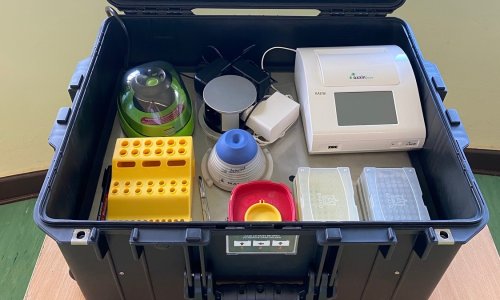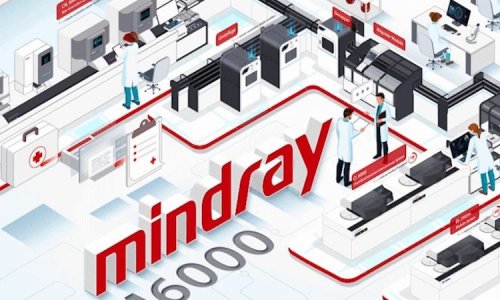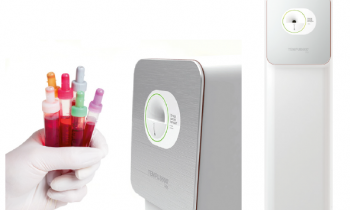Clinical chemistry
THE AACC FORUM 2014
This April, in San Jose, California, the portable lab took central stage at the American Association for Clinical Chemistry’s (AACC) annual forum for emerging clinical diagnostic technologies – a most appropriate topic for the Silicon Valley venue where so many world-changing computer and communications innovations have been born.

Known as the Oak Ridge Conference for 45 years, the renamed forum still focuses exclusively on pre-commercial technologies identified by AACC as having commercial potential and be used in clinical labs within five years. It attracts technology-oriented scientists, engineers, computer software gurus, academic researchers, laboratory executives, vendor representatives, and venture capitalists.
The keynote speaker was from Micronics, developer of ‘near patient’ IVD products for disease diagnosis and treatment monitoring, with technology based on microfluidics (the ability to substantially reduce sample and reagent volumes and process all assay steps within closed-system disposable devices). Company president Karen Hedline explained how a point-of-care (POC) company evolved from R&D to its commercial launch of a single use, disposable blood typing device, and its acquisition by Sony.
Among discussions were temporary human tattoos that contain novel potentiometric and amerometric biosensors, POC breath testing for biomarkers of human disease, and DNA amplification devices for infectious disease diagnosis, DNA sequencing, nanotechnology etc.
The smart phone revolution
Forum organiser Dr Jason Y Park spoke with European Hospital about smartphone technologies are revolutionising portable lab testing.
For the last 30-40 years, new point-of-care (POC) products have make clinical testing more accessible to patients at clinics, doctor’s offices, or at home. Non-prescription pregnancy tests are an excellent example. ‘Remarkably, within the last two or three years key components of many modern lab diagnostic equipment are electronic, having a computer processor or sensor,’ he said. ‘Contained in smartphones, they have powerful common Apple or Android platforms. I predict an explosion of devices for lab diagnoses utilising smartphones. They will become the hub for multiple analytic devices that use their optical and communication capabilities.
The evolution of new technologies will feed off one another, he said ‘ElectroZyme, a start-up company founded by two biomedical engineers in 2012, has developed a proprietary platform sensor technology in the form of a temporary tattoo, used to analyse chemical constituents of sweat and electrolyte levels in real-time. The tattoos are being designed to send signals and measurements to a smartphone, to upload this information to the cloud for retrieval and analysis by a clinical laboratory. This technology has the potential to enhance the performance of athletes,’ he explained.
Since the USA’s FDA issued guidelines for mobile medical apps in 2013, a relevant session on government regulatory issues was presented by a Washington D.C. specialist.
Dr Park ends: ‘The portable lab will expand affordable clinical lab services in ways we can’t even imagine, with tremendous impact on improving healthcare quality.’
Profile:
Dr Evan Y Snyder is a professor at the Sanford-Burnham Medical Research Institute in La Jolla, California, where he directs the Centre for Stem Cell Biology & Regenerative Medicine as well as the institute’s Stem Cell Research Centre and Core Facility. Additionally, he is a professor and faculty physician at the University of California-San Diego’s Department of Paediatrics and its Biomedical Sciences Graduate Programme.
18.06.2014











